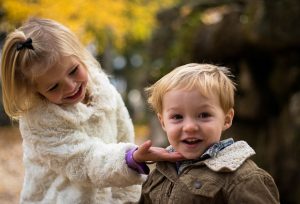Signs and Symptoms

Spoken language
Delayed speech development (for example, not speaking at least 10 different words by the age of two), or not speaking at all
Frequent repetition of set words and phrases
Speech that sounds very monotonous or flat
Preferring to communicate using single words, despite being able to speak in sentences
Responding to others
Not responding to their name being called, despite having normal hearing
Rejecting cuddles initiated by a parent or carer (although they may initiate cuddles themselves)
Reacting unusually negatively when asked to do something by someone else
Interacting with others
Not being aware of other people’s personal space, or being unusually intolerant of people entering their own personal space
Little interest in interacting with other people, including children of a similar age
Not enjoying situations that most children their age like, such as birthday parties
Rarely using gestures (such as pointing) or facial expressions when communicating
avoiding eye contact
Behaviour
Having repetitive movements such as flapping their hands, rocking back and forth or flicking their fingers
Playing with toys in a repetitive and unimaginative way, such as lining blocks up in order of size or colour, rather than using them to build something
Preferring to have a familiar routine, and getting extremely upset if there are changes to their normal routine
Having a strong like or dislike of certain foods, based on the texture or colour of the food as much as the taste
SIGNS OF AUTISM IN SCHOOL-AGE CHILDREN
Features of ASD that can develop in older children and teenagers are explained below.
Interacting with others
Not being aware of other people’s personal space, or being unusually intolerant of people entering their own personal space
Little interest in interacting with other people, including children of a similar age, or having few close friends despite attempts to form friendships
Not understanding how people normally interact socially, such as greeting people or wishing them farewell
Being unable to adapt the tone and content of their speech to different social situations, for example speaking very formally at a party and then speaking to total strangers in a familiar way
Not enjoying situations and activities that most children their age like
Rarely using gestures or facial expressions when communicating
Avoiding eye contact
Behaviour
Playing in a repetitive and unimaginative way, often preferring to play with objects rather than people
Having repetitive movements such as flapping their fingers, rocking back and forth or flicking their fingers
Developing a highly specific interest in a particular subject or activity
Preferring to have a familiar routine, and getting extremely upset if there are changes to their normal routine
Having a strong like or dislike of certain foods, based on the texture or colour of the food as much as the taste
Responding to others
Taking people’s speech literally and being unable to understand sarcasm, metaphors or figures of speech
Reacting unusually negatively when asked to do something by someone else
Spoken language
Preferring to avoid using spoken language
Speech that sounds very monotonous or flat
Speaking in pre-learned phrases, rather than putting together individual words to form new sentences
Seeming to talk ‘at’ people, rather than sharing a two-way conversation
